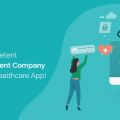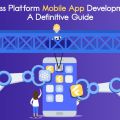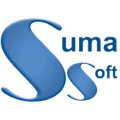Steps to Hiring the most Competent App Development Company for building a Healthcare App!


The significance of healthcare apps is intensifying as modern-era patients expect prompt digital services from their medical providers. Therefore, most healthcare organizations are under pressure to revamp their devices, systems, and software for providing better patient services and enhancing their operational workflow. Today medical apps dominate the healthcare market to a great extent and so healthcare providers must adopt effective software/app solutions for staying competitive.
However, architecting an impeccable, productive, and highly performant automated healthcare solution that perfectly complements the existing setup of a healthcare facility is no cakewalk. So, most medical service providers hire healthcare software development services to execute this challenging task.
Coming to hiring external agencies for building healthcare apps, healthcare providers get utterly confused due to the availability of multiple options. The commonest questions that baffle entrepreneurs are:
- Whom should I hire? – Freelancers, Offshore agencies, or engage the in-house team (if any).
- What are the factors to consider while hiring healthcare app development services?
- How to ensure that I pick one of the top mobile app development agencies?
Well, this post answers them all and a quick read will guide you to selecting the best-suited services for your medical body. Let’s commence!
Why is offshoring app development the most lucrative option?
Most medical providers choose to outsource their software development projects to offshore agencies rather than involving their in-house workforce or opting for budget-friendly services from freelance developers. Here are the reasons.
- Outsourcing saves a considerable amount of your time and lets you focus on core business functions.
- Offshoring allows you to access a huge talent pool from any part of the globe.
- Hiring offshore developers is far more cost-effective than maintaining an in-house team.
- The hiring process is hassle-free.
- Dedicated offshore developers are far more reliable than freelancers.
- An offshore team ensures real-time communication all through the developmental stages and on-time project delivery which is less likely with freelancers.
- Higher scalability is guaranteed.
Why is India the most preferred Offshore Location?
It has been observed that most businesses in the Western nations prefer to outsource their medical app development projects to a Healthcare app development company in India as this is considered to be the most profitable option. The reasons are as follows:
- Superior work quality available at unmatched lower rates
- Houses the world’s second-largest English-speaking population
- IT industries are a major part of the Indian economy
- Indian Government’s support to the IT sector through tax relaxation and other rules mentioned in the Information Technology Act 2000.
Factors to Consider before hiring App Development Services
Define your app development objectives
Decide what kind of healthcare apps you are going to build. Given below are the various types of healthcare software solutions.
Apps for Service Providers: Hospital Management Software, Healthcare Diagnoses Software, Medical Research Software, Digital Health Records Software, Medical Equipment Management Software, and Pharmacy Management Software.
Apps for End-users: Appointment Booking apps, Health Monitoring apps, Medical Records apps, medicine delivery apps, and Wellness apps.
Decide on the Feature Set
Decide on the desired features that you would like to integrate into the proposed medical app. Some of the standard features of a good healthcare app are telemedicine options, intuitive registration and auto-login, multifactor authentication, support for multiple languages, multimedia, etc., API compatibility, and a compelling UI/UX. Besides the basic features, you may add some extra functionality for gaining a competitive edge.
Checklists for Picking a Competent Mobile App Development Company in India

Background Check
Conduct an extensive background check in the following ways:
- Check their past work experience and the type of projects handled in the past by going through their portfolio.
- Examine the case studies, blogs, etc. to understand how their developers handled challenges faced during past projects.
- Go through the reviews by previous clients
- Validate the proficiency and level of expertise of the development agency.
- Look for company reviews/ranking on prominent online authority portals like GoodFirms, Clutch, Wadline, VenturePact, etc., and the accolades earned.
Essential Developer Skillsets
Having a thorough knowledge of programming languages is not enough for healthcare app developers. This is because medical app development extends way beyond coding and requires some additional prerequisites like interoperability, integration, and compliance with standard laws/regulations. As such, developers must have the required expertise and certain dedicated skills. Check them out!
Technical Skills:
Developers must be well versed with third-party integrations, data security standards, and cutting-edge technologies like big data, AI, AR, ML, VR, AR, IoT, AI, etc. so that they can craft a versatile, secure, and future-friendly solution.
Skills concerning Interoperability:
Semantic vocabulary and knowledge about integration standards and integrating frameworks are needed to make the software solution interoperable with the systems, devices, and existing software of the healthcare facility.
Domain Concepts:
The app development agency must be aware of revenue cycle workflows and the regulatory compliances/standards/certifications for medical apps mandated by the governing authority of the region where the healthcare software is to be implemented. For example, all healthcare software solutions used by organizations in the U.S. need to adhere to HIPAA (Health Insurance Portability and Accountability Act) and the medical bodies in Canada need to follow PIPEDA (Personal Information Protection and Electronic Documents Act).
Soft Skills:
Soft skills like app usability, and effective planning and coordination during the development cycle as well as after app launch, are necessary to avoid any operational glitches.
SLDC Check
Get a clear idea about which SLDC or Software Development Lifecycle model, your would-be technology partner is going to deploy. The checklists include the following:
- Clarity about whether an agile methodology (the most preferred approach) would be adopted
- The niche – iOS OR Android – of the developers allocated for your project
- The turnaround time expected for every stage of the SLDC
- The team’s approach towards the commitment required for debugging and troubleshooting and their stand to minimize the chances of re-runs while coding.
- Their readiness and policy to provide support post product deployment for executing interactive changes based on user feedback.
Service-level Agreements
There are certain service level agreements that you need to watch out for when hiring offshore agencies.
- An NDA (Non-Disclosure Agreement) is necessary to protect the app’s idea and design.
- An agreement between both parties concerning the payment deadlines, hourly/monthly rates, the token amount, and the form of payment (digital currency/wire transfers) is necessary.
- Negotiation talks after the announcement of the first quote, should be an integral part of the initial discussion.
Coding Standards and Code Ownership
Ensure that your app development partner possesses mastery in coding for the healthcare domain niche you have opted for and employs the best available and aptest frameworks/technologies for your healthcare application development project. Moreover, make sure an agreement is sealed wherein it’s declared that you are the rightful owner of the mobile application, its design and source code, and other app elements.
Common Mistakes to Avoid
- Not conducting adequate research to check the background of the agency you hire
- Hiring low-cost resources or the cheapest vendor available for accomplishing your project
- Considering the project cost as the key determiner for selecting healthcare app development services
- Prioritizing costs over experience and expertise
- Not paying attention to app store optimization
- Being unprepared for the stages after the product launch
Final words:
If you follow the aforesaid best practices and avoid the common mistakes, you are sure to hit a great deal and find that perfect offshore app development firm that will provide you with a compelling healthcare app solution.
If you are looking for a competent technology partner, reach out to Biz4Solutions, a proficient mobile app development company in India with a rich experience of 10+ years in building ground-breaking healthcare software solutions for global clients. We tailor the software as per the specific requirements of clients.
To know more about our core technologies, refer to links below:
Other articles and publications:
Articles and publications of other companies:
 Pixel Values Technolabs: Your Trusted Partner for The Best Codeigniter Development Services In India
Pixel Values Technolabs: Your Trusted Partner for The Best Codeigniter Development Services In India
- +1 (469) 277-0804
- 8305 Tripoli Trl, Frisco, TX 75034, United States
- www.biz4solutions.com/









